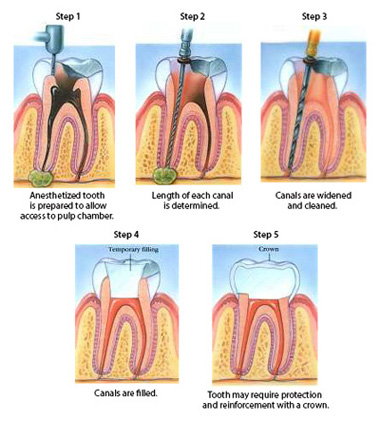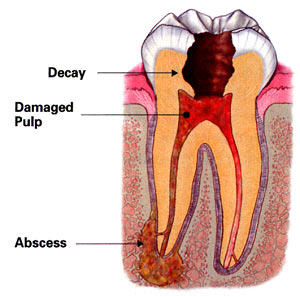 My tooth is still infected after an apicoectomy. I had a raging toothache and infection that required a same-day visit in early October. The dentist did an apicoectomy on a tooth that had a root canal 2 years ago. I had a checkup and x-ray two days ago. The bone is rebuilding, but a small pus sac on my gums shows an infection is lingering. My dentist gave me antibiotics to take for ten days. Is there anything else I can do to get rid of this infection? I
My tooth is still infected after an apicoectomy. I had a raging toothache and infection that required a same-day visit in early October. The dentist did an apicoectomy on a tooth that had a root canal 2 years ago. I had a checkup and x-ray two days ago. The bone is rebuilding, but a small pus sac on my gums shows an infection is lingering. My dentist gave me antibiotics to take for ten days. Is there anything else I can do to get rid of this infection? I
t’s going to be three months and counting with this. I’m waiting for it to clear before I get a new crown. I opted for a one-visit crown because I want to wrap this up and move on. Since I’ve had problems with this tooth, my dentist wants to wait before making the crown. I feel like making an emergency appointment with another dentist before I return to mine – if I return. I don’t know what to do. Thanks. Marianna from TN
Marianna
After your struggle with a tooth infection for almost two months, your concerns are understandable. We will share some information that may help you decide whether to wait for your dentist or to get a second opinion.
What Is an Apicoectomy?
- Unlike root canal treatment that approaches the pulp chamber by drilling a small hole in the tooth, with an apicoectomy, a dentist or endodontist surgically accesses the tooth through the gums.
- The surgery allows the dentist to access the root tip and remove infection or inflammation.
- The dentist places a small filling to seal the root tip.
- Stitches close the small incision.
How Will Antibiotics Help?
Root canal treatment, apicoectomy, and any other apical surgery will help the tooth heal, and the infection will eventually disappear. The dentist or endodontist needs to remove all the dead tissue inside the tooth and seal the end of the root well.
Antibiotics
Although antibiotics can speed up the healing process, removing the source of the infection determines if the treatment will succeed.
If the bone around your tooth is healing, your dentist likely removed the infection. Any residual infection will eventually disappear, and the antibiotics will speed up the healing process. It takes patience, but your tooth will heal, and you can get a dental crown.
Although you can get a second opinion from a dentist with root canal treatment experience, an emergency dental visit won’t give you the necessary information.
Baton Rouge family dentist Dr. Ryan Perry sponsors this post. Please read about how he strives to provide his patients with the best care possible.
 What’s next if I had a root canal fail? A toothache that has been bothering me for the past two months got so bad last weekend that I saw a nearby dentist for a same-day appointment. I did not want to return to my previous dentist because I didn’t like the customer service at the practice, and the hygienist is quirky. The toothache was in an upper left first molar tooth that my dentist did a root canal on two years ago. The dentist I saw most recently said she would need to refer me to an endodontist for a procedure called an apico? I have been a little slack about going to the dentist, and I haven’t seen one since I quit my last dentist, so maybe I could have avoided this. What is this apico procedure, and do I really need it? Thanks. Malachi
What’s next if I had a root canal fail? A toothache that has been bothering me for the past two months got so bad last weekend that I saw a nearby dentist for a same-day appointment. I did not want to return to my previous dentist because I didn’t like the customer service at the practice, and the hygienist is quirky. The toothache was in an upper left first molar tooth that my dentist did a root canal on two years ago. The dentist I saw most recently said she would need to refer me to an endodontist for a procedure called an apico? I have been a little slack about going to the dentist, and I haven’t seen one since I quit my last dentist, so maybe I could have avoided this. What is this apico procedure, and do I really need it? Thanks. Malachi
